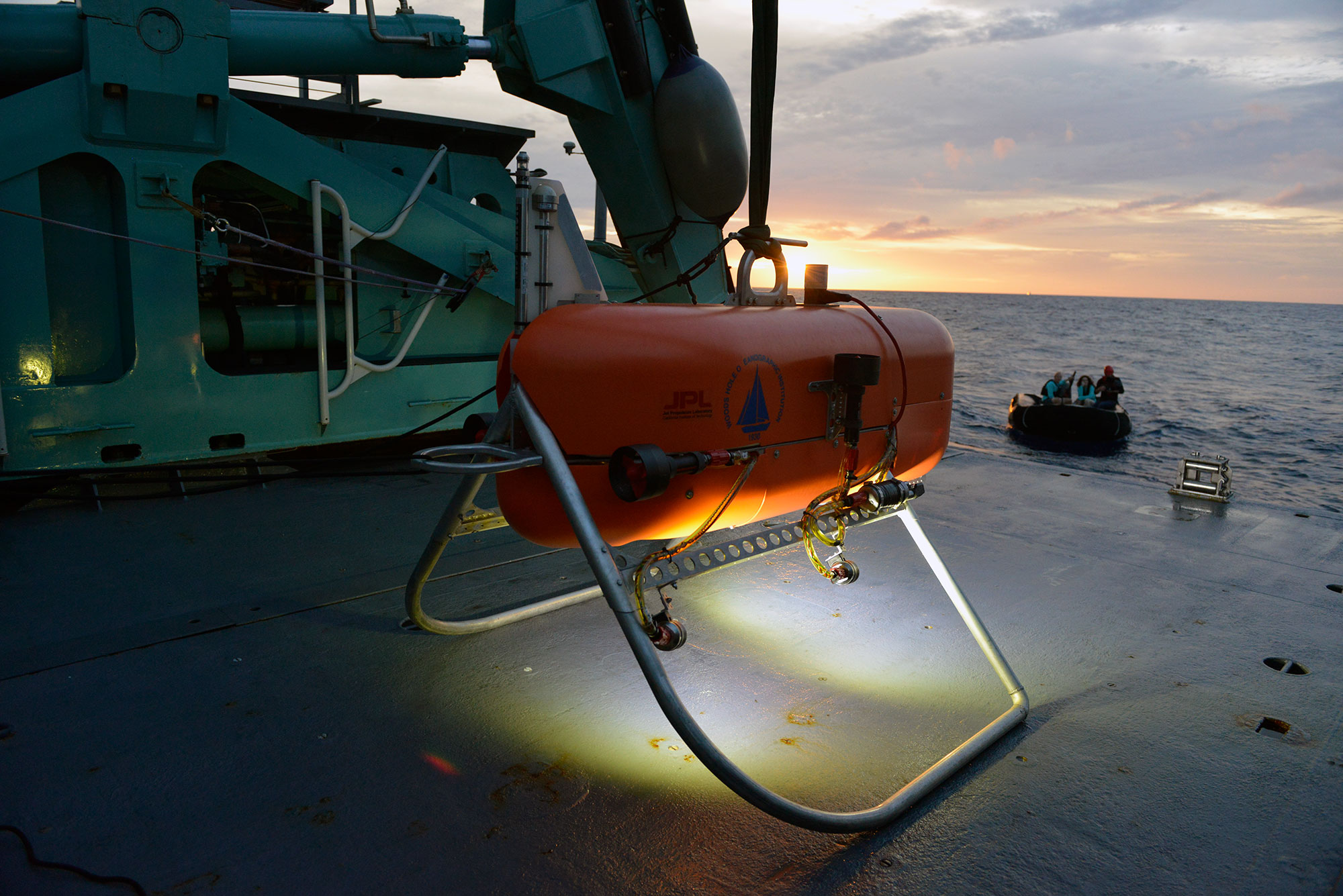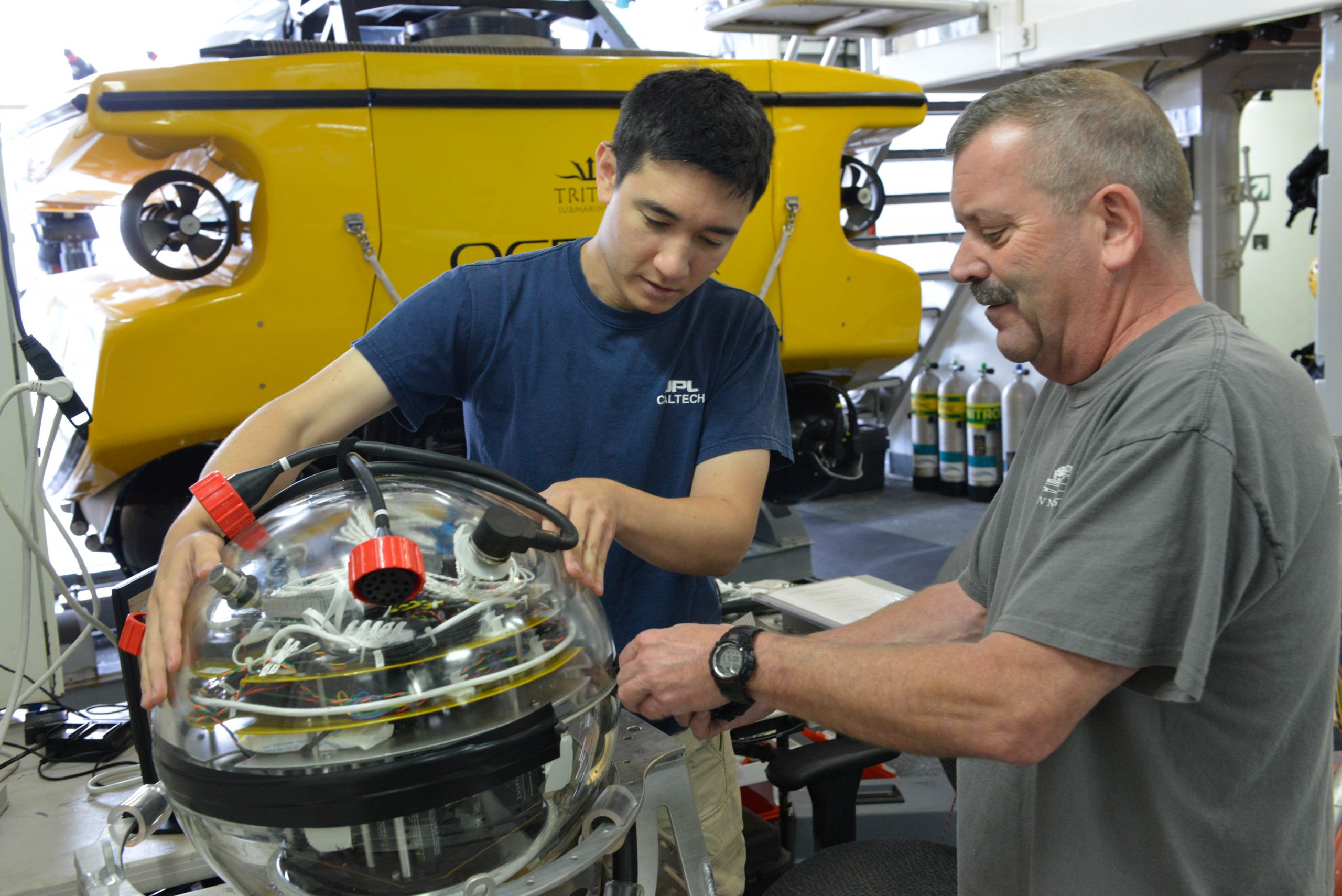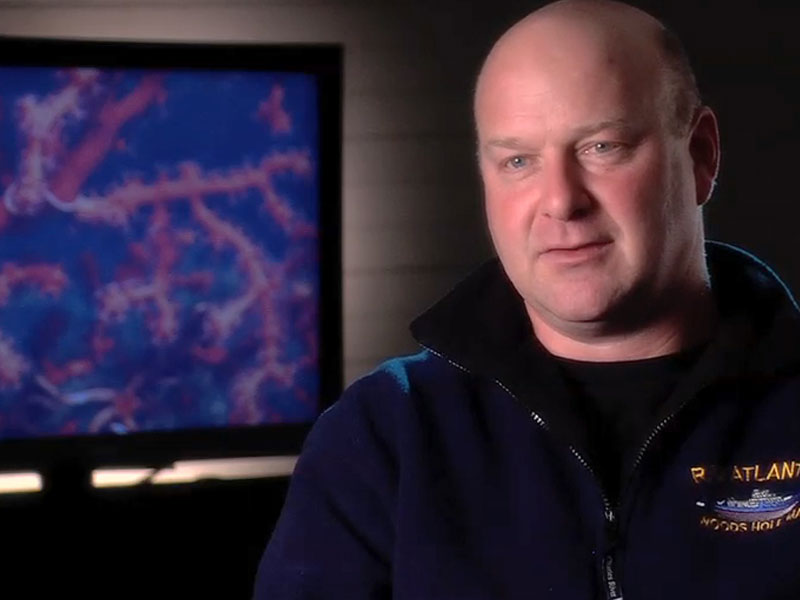About the HADEX program
Earth’s hadal region extends from 6,000 to 11,000 meters (20,000 to 36,000 feet)—nearly half of the ocean's depth range—and covers an area of the seafloor that may be larger than Australia. It is also the deepest, most remote, and most extreme ocean habitat on Earth. As a result, relatively little is known about what lives in the deepest ocean or how it connects to the rest of the ocean and the rest of the planet.
Evidence suggests that life below 6,000 meters is surprisingly rich and diverse, despite the harsh conditions there, and fundamentally different from all other life on Earth. Additional exploration is necessary to better understand the strategies that have evolved to permit life to thrive under such conditions, the range of ecosystems exist there, how they function and interrelate, and the role that the hadal zone plays in such critical planetary systems as global carbon and nutrient cycling.
A deeper understanding of the hadal zone also sets the stage for exploration of oceans beyondEarth, on planetary bodies such as Jupiter’s moon Europa and Saturn’s moon Enceladus, which are known to harbor liquid water oceans beneath a thick crust of ice. Systematic exploration of Earth’s hadal regions will not only reveal unique adaptations to extreme conditions that may be present on these ocean worlds, but will also broaden our understanding of the range of conditions capable of supporting life here and, by extension, beyond Earth.
WHOI’s HADEX program is built on the successes of the previous HADES initiative and seeks to carry out a comprehensive hadal research and exploration agenda and technology development in partnership with NASA’s Jet Propulsion Laboratory to construct hadal autonomous vehicle in conjunction with ocean worlds initiatives will greatly accelerate discoveries in the hadal zone, fundamentally changing our understanding of life on Earth and elsewhere.
HADEX and the Orpheus Program have been supported by:
Bloomberg Philanthropies
Dalio Explore Fund
NASA Jet Propulsion Laboratory
NOAA Ocean Exploration
The Ocean Exploration Cooperative Institute
OceanX
Woods Hole Oceanographic Institution








